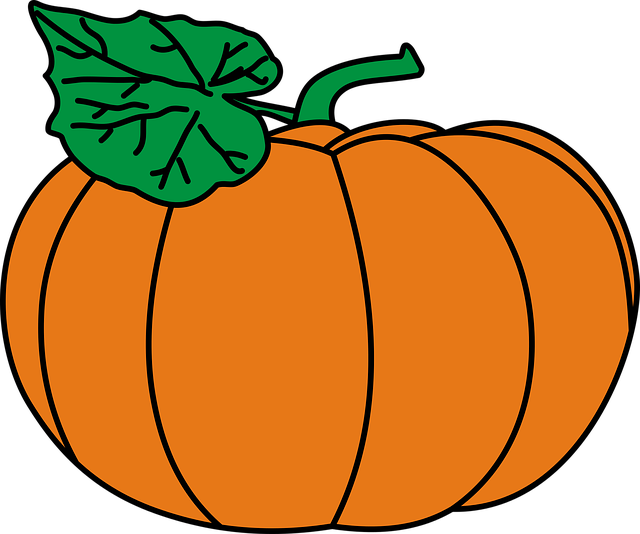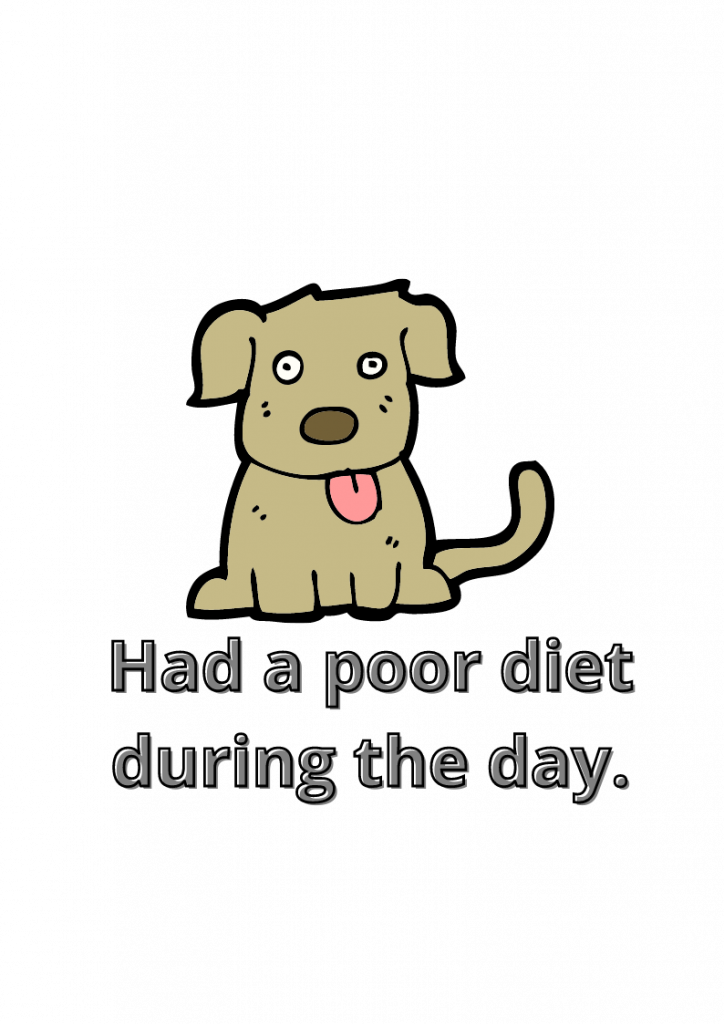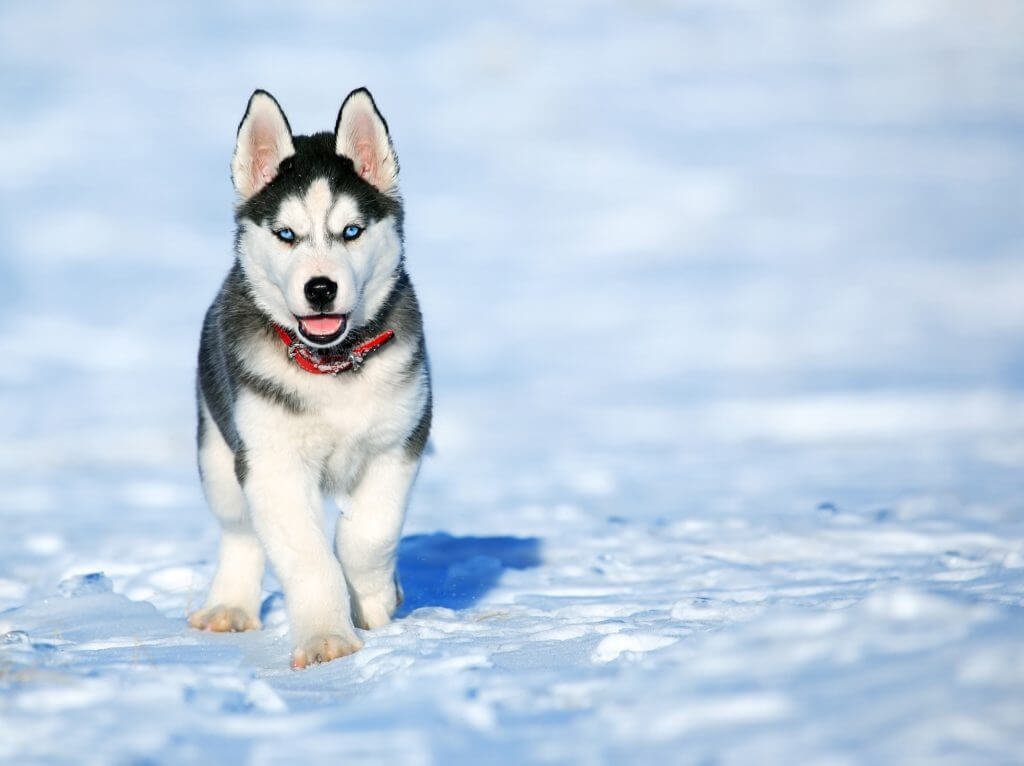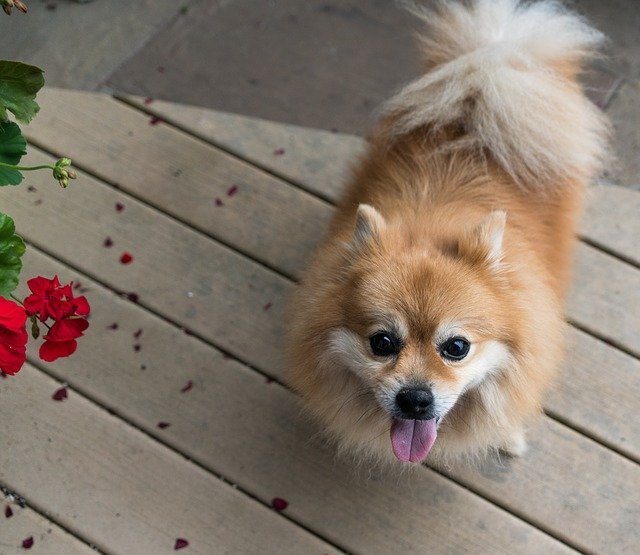Premium-quality, well-balanced, protein- and fiber-rich food will firm up dog poop. Some popular choices include pumpkin, sweet potato, cooked carrots, and oatmeal. Each option has different benefits that can help firm up your dog’s stool.
Table of Contents
What Food Will Firm Up Dog Poop?
- High Fibrous Food
- Chicken & Rice Soup
- Fish & Veggie Medley
- Pumpkin
- Oatmeal
- Sweet Potato
- Cooked Carrot
- Lactose-Free Diet
- Probiotics
- Dry Food
1) High Fibrous Food
A study was performed to determine the efficacy of feeding a diet containing a high concentration of mixed fiber sources for managing acute large bowel diarrhea in dogs in shelters. Fifty-three dogs with acute large bowel diarrhea were randomly assigned. The dogs were divided into three groups: Group I (4.54% soluble; 15.16% insoluble fiber); and Group II (0.6% soluble; 5.33% insoluble fiber). The normal fecal score in dogs is 3, while for acute diarrhea; the fecal score is 6 and 7. All dogs fed with 4.54% soluble; 15.16% insoluble fiber have a fecal score of >5. Adding fiber to your dog’s diet helps keep stools soft and easy to pass. {{{1}}}
2) Chicken & Rice Soup
This soup is high in fiber and protein while low in calories. It’s ideal for dogs with digestive issues because it has plenty of carbs and protein to help keep them going throughout the day. Chicken & Rice Soup is also rich in vitamins and essential nutrients for healthy digestion in dogs. You should give your dog about 1/4 cup of cooked rice daily. It is a great way to get rid of the loose stool and make it easier for your dog to pass it. {{{2}}}
3) Fish & Veggie Medley
This meal has lots of protein, which helps keep your dog’s bowels moving smoothly, so he doesn’t have to strain himself trying to pass stool out of his body. Fish contains omega-3 fatty acids, which are important for heart health and brain function. Veggies contain fiber that acts as a diarrhea suppressant too. A diet that contains cooked fish and rice will also help to firm the dog poop. {{{3}}}
4) Pumpkin
Pumpkin is full of soluble dietary fiber, which helps keep stools soft and easy to pass. Just be sure to check with your vet before giving it to animals that tend to be constipated (like older dogs). Also, ensure the canned pumpkin is mixed in water rather than fat-free broth or gravy; otherwise, it could cause vomiting or diarrhea. {{{4}}}

5) Oatmeal
Oatmeal is one of the best natural laxatives because it contains fiber that absorbs water quickly and expands when hydrated. Oatmeal will make your dog’s stool softer and easier to pass through the digestive system, making it great for keeping things nice and clean! Oatmeal should only be given once daily, so don’t overdo it! {{{5}}}
6) Sweet Potato
Sweet potatoes are another great source of fiber for dogs with digestive ailments or sensitive stomachs. They’re also sweet enough that most dogs love them! A good source of fiber and beta carotene, sweet potatoes can help firm up your pup’s poop. Slice one up and add it to your dog’s kibble. {{{6}}}
7) Cooked Carrot
Carrots are full of fiber and vitamin A, which can help with diarrhea by firming the stools. This high-fiber food can also help constipation by adding moisture to the stool. Chop up a cooked carrot and add it to your dog’s kibble or mix some with canned pumpkin or butternut squash. {{{7}}}

8) Lactose-Free Diet
Lactose is a sugar found in milk; when dogs ingest too much lactose at one time, they can experience diarrhea or vomiting. By switching to a lactose-free diet for your pet’s food, since most processed foods contain milk products anyway (even if not labeled as such), you can avoid this issue in your dog. {{{8}}}
9) Probiotics
Probiotics are live bacteria and yeasts that help improve the health of your dog’s gut. Yoghurt also contains probiotics; beneficial bacteria that help keep your dog’s digestive system healthy. The easiest way to get probiotics into your dog is by feeding them a good grade of canned food or supplementing their diet with organic probiotics. {{{9}}}
10) Dry Food
Dry food can help your dog poop get firmer compared to wet food. If you have a dog having trouble keeping his feces firm, try switching to a low-calorie dry food with more fiber like Hills i/d. A study was conducted to evaluate the efficacy of soluble fiber Metamucil with Hills i/d in 37 dogs diagnosed with chronic diarrhea. The results show a high rate of recovery after the treatment. The fiber in Metamucil will help bulk up the stool and keep it from getting too soft or mushy. {{{10}}}
Causes of Soft Stools In Dogs
- Poor Diet
- Diet Change
- Infections
1. Poor Diet
The most common cause of soft, mushy stool is improper diet. A dog’s diet should include high-quality protein, fiber, and fat, which provide the necessary nutrients for their digestive system to work properly. The other common cause of diarrhea is a lack of fiber, which helps keep the stools soft and moves them through the digestive system more easily.
2. Diet Change
One common cause of soft stools in dogs is a change in diet. If you’ve recently switched your dog’s food, their stomach may not be able to handle the new ingredients. It can cause diarrhea or soft stools. It’s important to introduce any new food slowly, for a week or so, to give their stomach time to adjust.
3. Infections
Another possible cause of soft stools is an infection. It can be bacterial, viral, or parasitic. A more serious cause of soft stools is a health issue such as inflammatory bowel disease (IBD). IBD is a chronic inflammation of the gastrointestinal tract. Symptoms of IBD include soft stools, diarrhea, weight loss, and vomiting. If you think your dog may have IBD, it’s important to take them to the vet to get the proper treatment. {{{11}}}
Final Verdict
There are a variety of foods that can firm up dog poop. The best options include cooked carrot, sweet potato, pumpkin, and probiotics. These foods are high in fiber and can help to add bulk to the stool. Other options include cooked rice and oatmeal. Adding fiber to your dog’s diet is also a good way to firm up their poop. If your dog has severe diarrhea, talk to your veterinarian about the best food options for your pet.
References:
- https://www.ncbi.nlm.nih.gov/pmc/articles/PMC8965269/
- https://pubmed.ncbi.nlm.nih.gov/6836176/
- https://www.veterinarians.org/dog-diarrhea/
- https://www.ncbi.nlm.nih.gov/pmc/articles/PMC7152016/
- https://www.ncbi.nlm.nih.gov/pmc/articles/PMC7151799/
- https://www.ncbi.nlm.nih.gov/pmc/articles/PMC7182012/
- https://www.ncbi.nlm.nih.gov/pmc/articles/PMC6776304/
- https://pubmed.ncbi.nlm.nih.gov/7996263/
- https://pubmed.ncbi.nlm.nih.gov/16867072/
- https://pubmed.ncbi.nlm.nih.gov/10668813/
- https://pubmed.ncbi.nlm.nih.gov/23532922/







